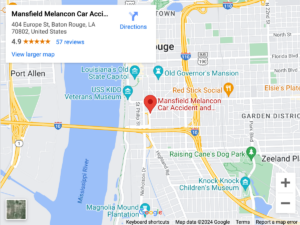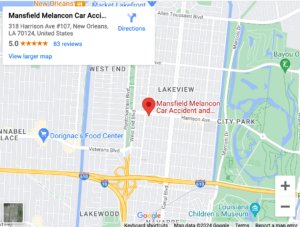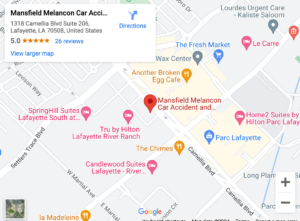
When accidents happen due to the negligence of someone else, that person can be held responsible through a personal injury claim. Negligence forms the basis for a claim when someone fails to follow a duty of care to other people, and injuries happen as a result. In most personal injury claims, you’ll need to prove negligence before you can collect financial compensation.
After an unexpected accident, you could face medical bills, lost income, property damage, out-of-pocket costs, and other losses such as pain and suffering. You should not have to bear this burden if someone else’s negligence led to your injuries. An experienced personal injury lawyer can help.
Elements of Negligence in a Louisiana Personal Injury Claim
Negligence in personal injury claims requires four separate elements. Only when each element is shown can a defendant be found negligent.
The elements of negligence include:
- Duty. Based on the situation, people can owe a duty of care to others. A driver owes a certain duty of care to other drivers on the road to avoid a car accident, for example.
- Breach of duty. When people don’t exercise reasonable care and caution for others, they could have breached their duty of care – leading to potential legal liability.
- Causation. You’ll need to prove a causal connection between the defendant’s breach of duty and what happened to cause your injuries. Without this, you will not be able to prove negligence.
- Damages. Medical bills, lost wages, lost future income, vehicle damage, and other types of losses must be shown to prove the final element.
Here, we’ll break down what these elements mean and how to prove them.
What Is Duty of Care and When Does It Apply?
In a personal injury case, you’ll first need to establish that the person you are blaming for your injuries actually owed a duty of care to you. Duty is an obligation created by laws, customs, or common sense, depending on the situation. Put simply, duty of care means acting in a way that doesn’t create a risk of harm to other people.
For example, drivers owe certain duties to other drivers, doctors have a duty of care to their patients, and business owners have duties of care to guests invited to their buildings. In general, people are expected to follow a “reasonable person” standard. This asks the question: did the person act as a reasonable person would have under the circumstances?
What Is Breach of Duty?
Breach of duty is the second element of negligence. Breach happens when the defendant failed to follow their duty of care given a certain situation. Examples could include a driver running through a red light, a surgeon leaving a medical instrument in a patient’s body, or a shop owner failing to clean up a dangerous spill in their store. When it comes to breach, the question is whether a reasonable person in that situation would have done something differently to avoid danger to other people.
What Is Causation in a Negligence Claim?
You will need to prove a logical connection between the at-fault party’s breach of duty and your resulting injuries. In legal terms, you must prove the defendant’s acts were the direct and proximate cause of your injuries. The causation element asks: would you have been unharmed were it not for the defendant’s actions? The accident had to have been a reasonable and foreseeable consequence of another person’s action or failure to act.
For example, if a driver runs a red light and crashes right into your car, causation is simple to prove. On the other hand, if you were involved in a multi-vehicle accident, it can take time to figure out who caused what and which driver was truly to blame for your injuries. Causation can be complicated to prove in that situation. In either situation, an experienced personal injury lawyer can help determine who was at fault and how to prove causation.
What Are Damages in a Louisiana Negligence Claim?
The final element in a negligence claim would be damages. You need to prove that you were actually harmed and suffered a loss due to the accident. Medical reports, bills, property damage, lost income, pain and suffering, or other types of damages in a personal injury claim.
Economic damages are one type of damages in your negligence claim. These are the actual “dollars and cents” losses from an accident. Medical bills, lost wages, out-of-pocket costs, property repairs, and other expenses would fall within economic damages.
Non-economic damages in a negligence claim would be the “intangible” losses due to your injuries. These might include pain and suffering, emotional anguish, loss of companionship with a loved one, and other unseen but equally devastating losses from an accident.
A Louisiana Personal Injury Lawyer Can Help You Prove Negligence
Were you hurt in an accident in Louisiana? You could have important legal rights – including the right to pursue a claim for negligence. Proving negligence in a personal injury case requires proving different elements with evidence. An experienced lawyer can help. Contact a Louisiana personal injury lawyer from Mansfield Melancon Car Accident and Personal Injury Lawyers at (225) 263-4787 to schedule your free consultation today.



